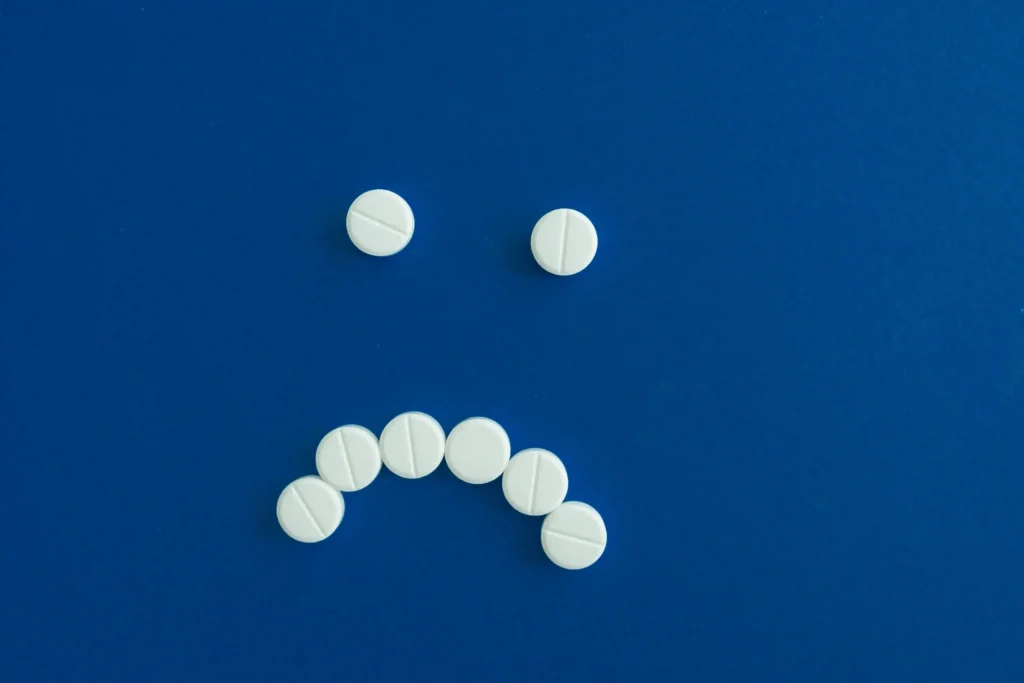Introduction

The medicine people take for their mental health conditions can by chance interrupt their body’s natural temperature control system. The medication puts you at a higher risk of experiencing heat strokes especially when it is hot outside. Now we will see Can Antidepressants Really Cause A Heat Stroke?
Table of Contents
1. What Are Antidepressants and How Do They Work?
The medicine antidepressants modifies specific brain chemicals including serotonin, dopamine, and norepinephrine which helps patients with mood and anxiety conditions.
Antidepressants doctor change neurotransmitter amounts in the brain to help patients maintain emotional stability. There are multiple antidepressant medications with different types including SSRIs, SNRIs, MAOIs and tricyclics. The drugs change more than emotional well-being because they impact vital physical operations such as sleep patterns appetite control and how your body handles temperature so unwanted effects may appear outside of mental symptoms.
2. Can Antidepressants Affect Body Temperature Regulation?
Certain antidepressant drugs affect your body’s sweating system which lets heat escape thus making you more prone to dangerous overheating situations.
Tricyclic antidepressants and SSRI medications change how the brain controls heat management activities. The drugs block normal sweating that helps the body shed heat. High temperatures during exercise and heat exposure become increasingly dangerous for people using these medications because their bodies cannot properly cool down.
3. What Is Heat Stroke and What Causes It?
When a person stays too long in hot weather without enough fluids and cannot lower their temperature they develop a dangerous condition called heat stroke.
The body enters heat stroke state when its core temperature reaches 40°C (104°F). You develop heat stroke when you face extreme temperatures while working hard and your sweating powers decline. Heat stroke shows first as confusion along with accelerated heartbeat and upset stomach which can lead to fainting. The victim needs fast cooling plus urgent medical treatment to avoid serious heat stroke problems and prevent death.
4. How Do Antidepressants Potentially Contribute to Heat Stroke?

The decrease in sweating caused by some antidepressants leads to impaired heat regulation of the hypothalamic system. Regular sweating serves as a natural heat release mechanism but becomes compromised when using these medications along with raising the danger of heat stroke.
The hypothalamus works as the main temperature regulator in the human brain. Some types of antidepressant medicines block receptors that make the body sweat or harm its temperature-control mechanism. Anti-depression drugs create extra dehydration and fatigue that boost the chance of heat stroke. Under high heat conditions and during exercise the body’s ability to release heat efficiently becomes blocked causing potential overheating and heat emergencies.
5. Which Types of Antidepressants Are More Likely to Cause Heat Sensitivity?
Tricyclic antidepressants and specific SSRIs most often cause discomfort when exposed to heat. These medications make it harder for your body to regulate temperature through sweat function which increases serotonin and creates heat resistance issues.
Antidepressants such as amitriptyline and nortriptyline in the tricyclic group plus Prozac from the SSRI category alter body functions that control sweating and blood vessel regulation. Facility of heat release becomes more difficult. The effects on heat sensitivity often come from MAOIs and additional drugs that affect water balance or body temperature control.
6. Are There Warning Signs of Heat Stroke While on Antidepressants?
Heat stroke warning signs for people using antidepressants include feeling tired more than usual along with dizziness, memory problems, upset stomach, redness in the face and unusual sweating. The body of people who take antidepressants shows impaired heat regulation if they have these symptoms.
The beginning signs of heat stroke can develop slowly and stay hidden by medication effects. Depression drugs may block your ability to feel when you become overheated. Keep an eye out for red skin that feels hot, fast heartbeats, thought problems and high body temperature. When your body fails to maintain proper cooling you must relocate to a cool area and look for medical care right away.
7. Who Is Most at Risk of Heat Stroke from Antidepressant Use?
People who are aged and sickly with multiple medicines receive a higher heat stroke risk. People who do outdoor events under medication prescription face heighted safety risks.
Illness and aging make the body less effective in controlling its heat level. The increased risk develops when administrators start medicines that control perspiration or blood flow. When taking antidepressant medications people who do physical work outside or without air conditioning need special supervision. Taking multiple drugs at once makes the risk of heat illness stronger.
8. How Can You Stay Safe in Hot Weather While Taking Antidepressants?

Keep yourself hydrated by staying out of direct sunlight and wear loose clothes throughout the day while seeking relief in cool spots. Watch out for early signals of heat stroke and rest during times when heat is strongest.
Addressing actual cooling abilities becomes essential when treating patients with antidepressants. You need to drink water throughout the day regardless of your thirst level. Minimize time spent in sunny areas from midday to 4:00 pm and use wind-powered fans or electric air-conditioners. Clothing made with breathable materials plus taking refuge inside shaded or cooled rooms lessens your chances of developing heat problems. Get medical assistance without delay when you experience heat stroke symptoms.
9. Should You Stop Taking Antidepressants During a Heat Wave?
You need to continue your antidepressant treatment according to your doctor’s instructions. Not taking your medication as prescribed will bring on drug withdrawal reactions and make your mental health worse.
It may not be smart to discontinue medications that create heat sensitivity because the move carries genuine risks. Prescribed antidepressant drugs modify brain chemistry so gradual reduction is necessary for ending treatment. Team up with your doctor to find suitable replacement medications instead of ending your treatment. At the same time work on heat protection techniques while telling your doctor about any heat-related symptoms.
10. What Do Doctors Recommend for Managing Heat-Related Side Effects?
The medical team says people should get rest in a cool place while staying hydrated and away from hot temperatures. They usually adapt your medicine intake by changing the amount you take or replacing the treatment product that disrupts your temperature control system.
Your doctor treats antidepressant side effects based on your body condition and living context. When this problem persists they will analyze your list of medications for better choices and establish a treatment plan. They will suggest basic solutions such as consuming more fluids along with wearing cooling gear then making small lifestyle changes. Charity speakers about possible heat-related side effects during the hot summer period.
Conclusion
Your body does not regulate heat the same when you take antidepressants despite their role in mental health treatment. This puts you at higher risk of developing heat stroke. The link between these medicines and sensitivity to heat needs accurate understanding when temperatures rise. When following health safety steps such as drinking enough water and keeping safe from heat contact you can balance your mental well-being with your usual treatment.